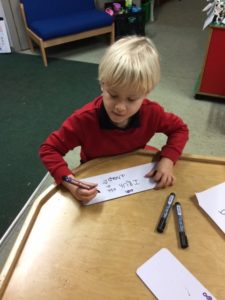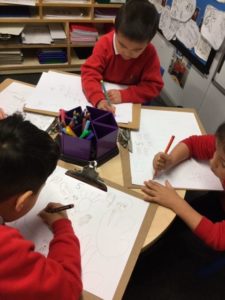Phonics in Year 1
Recently, there was a parent Zoom session on phonics. In case you were unable to attend and you would like to know more, the sessions have been recorded and are available to view.
- Phonics video 1 – supports parents with children in Foundation 2 (Reception) who are learning phonics at Phase 2.
- Phonics video 2 – supports parents with children in Foundation 2 (Reception) and Year 1 who are learning phonics at Phases 3, 4 and 5, and information about the phonics screening check which takes place towards the end of Year 1.
Links to the two videos are also on our dedicated phonics page.
For your information, in Year 1, we are currently completing phonics at Phase 4 and after Christmas we will begin Phase 5. There’s lots of information here about the new sounds we will be learning and some we already know, for example ‘ai’, but with different graphemes, for example a-e, ay, a, ey, ea, aigh and eigh.
We have been very impressed with the children’s progress with phonics this term. Understanding phonics is the basis for your child’s reading and writing. Please do ask if you would like any more support about your child’s phonics learning.
Living and Learning
During the last 3 weeks of term, in our Living and Learning sessions, we have been learning about relationships.
Recently, in Y3, we talked about the different relationships we have with our family and friends. We also discussed the stages of life that our family and ourselves are at, ranging from babies, children, teenagers, adults to elders.
Here are some pictures of the Y3s drawing the people in their family and labelling what stage of life they are in.
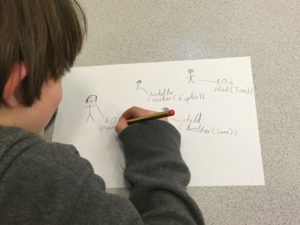
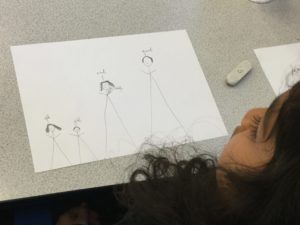
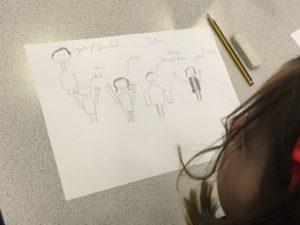
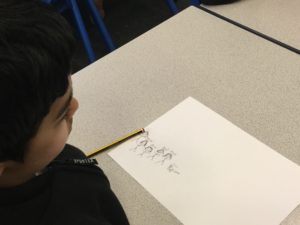
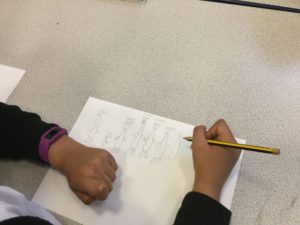
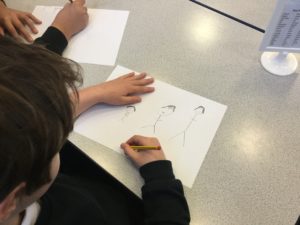
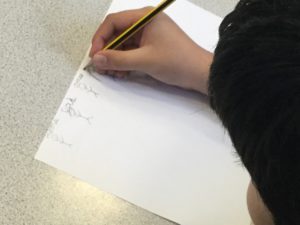
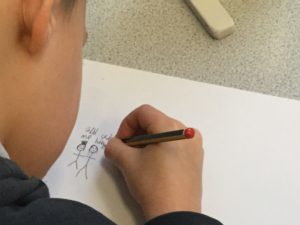
Christmas!
Enjoying Christmas dinner and the Santa Dash.
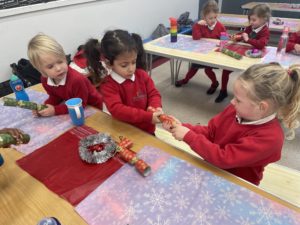
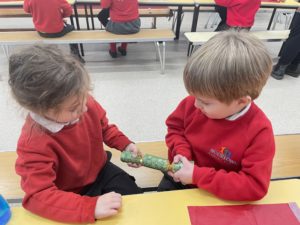
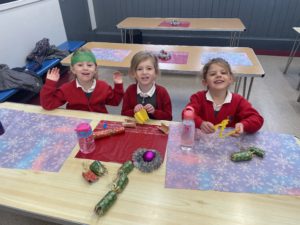

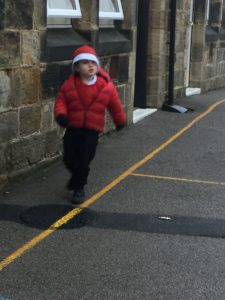

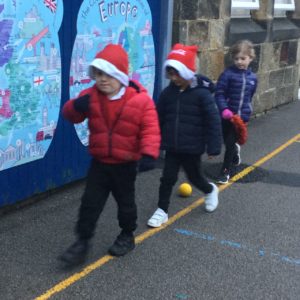
A surprise visitor to Year 1
This morning, Year 1 had a message from a very special person.
Dear Children,
My favourite song is ‘Jingle Bells.’
I hear that you have been singing this s0ng and playing some instruments. I have left two special musical instruments, that sound just like the bells on my sleigh, inside your lovely doll’s house. Please can you use them when you sing my favourite song? It would make me very happy indeed!
Merry Christmas
from
It appears the culprit was captured on the school cameras!
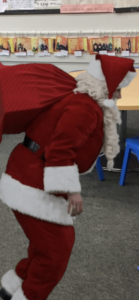
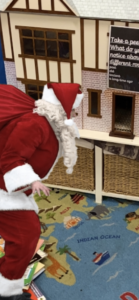
Santa dash Friday 11 December

Impressive Improvements
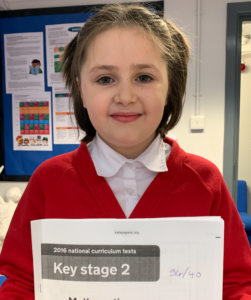
This young lady has shown amazing resilience over the last few months. She came to share this amazing arithmetic score with me yesterday – 34 out of 40. Her smile says it all and she was very proud to tell me that since September, she has more than quadrupled her score! Absolutely amazing!
PE
For PE today, we used the large apparatus in the hall. This generated a lot of excitement ! The children were able to explore the equipment whilst developing control, coordination and balance. We discussed how to use space and apparatus safely and how to change movements to avoid other children.
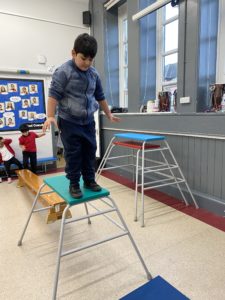
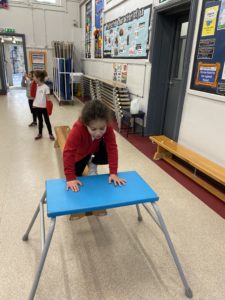
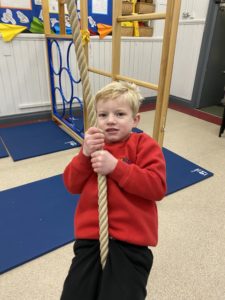
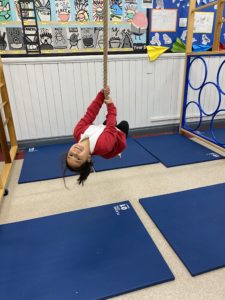
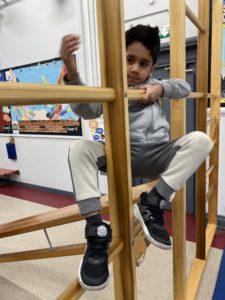
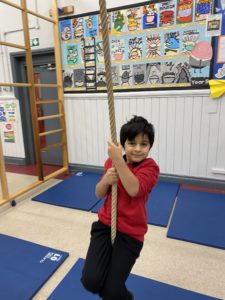
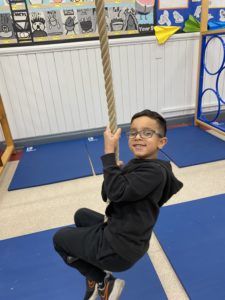
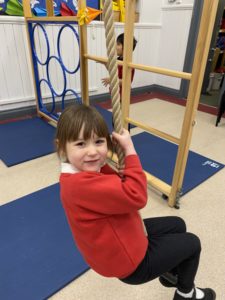
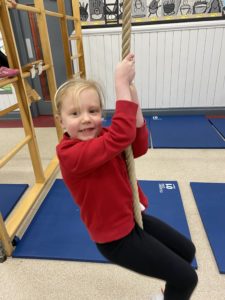
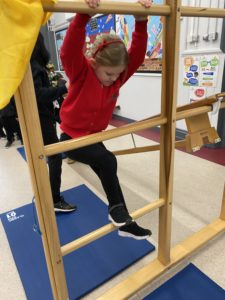
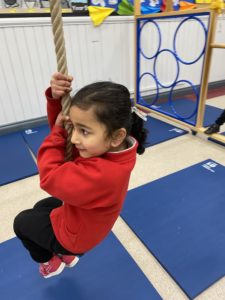
History: Ancient Greek legacy
We’ve been creating mini-project boards to show the lasting legacy that Ancient Greece has given us.
We have already learnt about how the Ancient Greeks have us democracy. In this learning, we’ve learnt about how they were pioneers in maths, science, philosophy, sport and theatre.
Working as a team has been a great way to work collaboratively, developing social skills. The children have also been creative in how they have presented their learning.
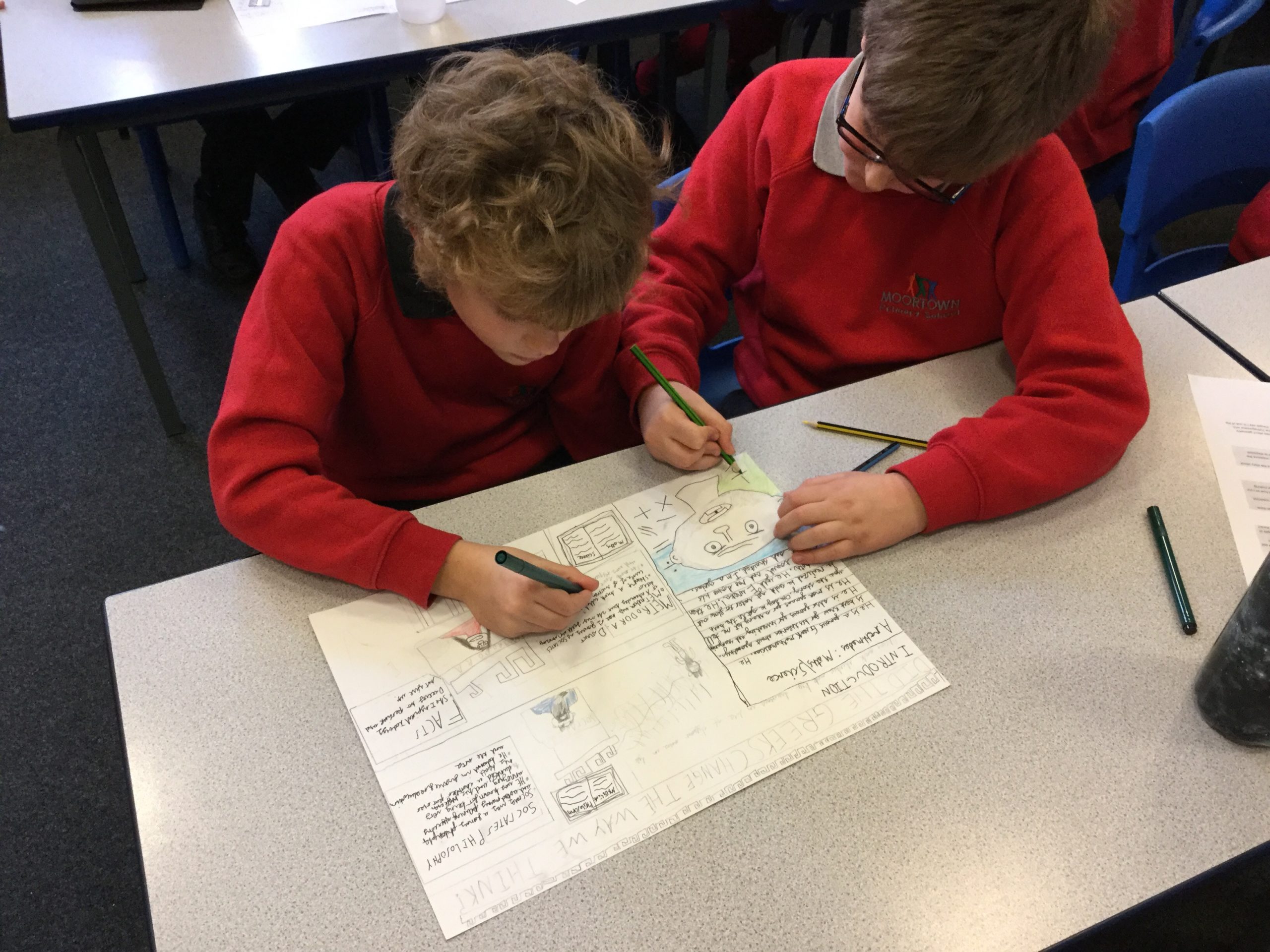




Science: sound travelling through a medium
This afternoon, we’ve been investigating the way that sound travels. We talked about how sound travels through different mediums.
Sound travels through the air into our ears.
Next, we observed how sound travels through water. We put a tuning fork and into a bowl of water and observed the sound waves rippling across the water from the tuning fork

After that, we investigated of sound travels trough a solid. We made string telephones and found that we could hear each other talking as sound travelled along the string. It even worked with really long string telephones!

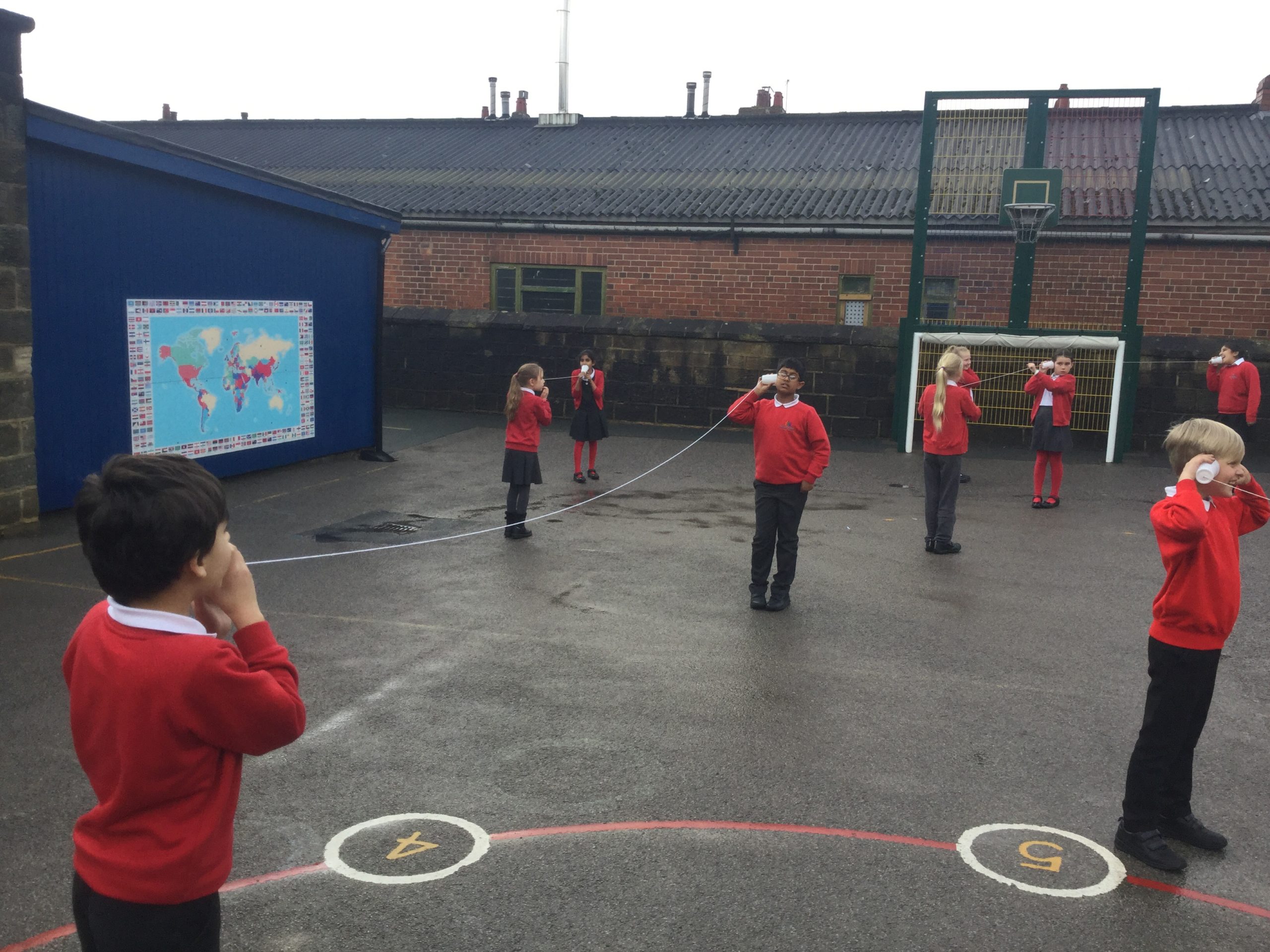
This week’s learning
Phonics
This week we will begin phase 3 ‘Letters and Sounds’.
The purpose of this phase is to:
- teach more graphemes, most of which are made of two letters (digraphs), for example, ‘oa’ as in boat.
- practise blending and segmenting a wider set of CVC words, for example, fizz, chip, sheep, light
- learn all letter names and begin to form them correctly
- read more tricky words and begin to spell some of them
- read and write words in phrases and sentences.
Here are some examples of words your children will be reading: tail, week, right, soap, food, park, burn, cord, town, soil
(Remember: these words all contain three phonemes).
During phase 3 the children will learn more ‘Tricky Words’.
he, she, we, me, be, was, my, you, her, they, all, said
Children will begin to write sentences independently.
Definitions
Blending– Children need to be able to hear the separate sounds in a word and then blend them together to say the whole word .
Segmenting– Children need to be able to hear a whole word and say every sound that they hear.
Phoneme–Phonemes are sounds that can be heard in words.
e.g. c-a-t
Grapheme–This is how a phoneme is written down.
Digraph –This means that the phoneme comprises of two letters
e.g. ll, ff, ck, ss
Maths
We are continuing to investigate the number 5 and find one more and one less than a number. We will be learning about the properties of shapes with four sides.
Literacy
This week we will be introducing capital letters and full stops and beginning to read and write simple sentences
.